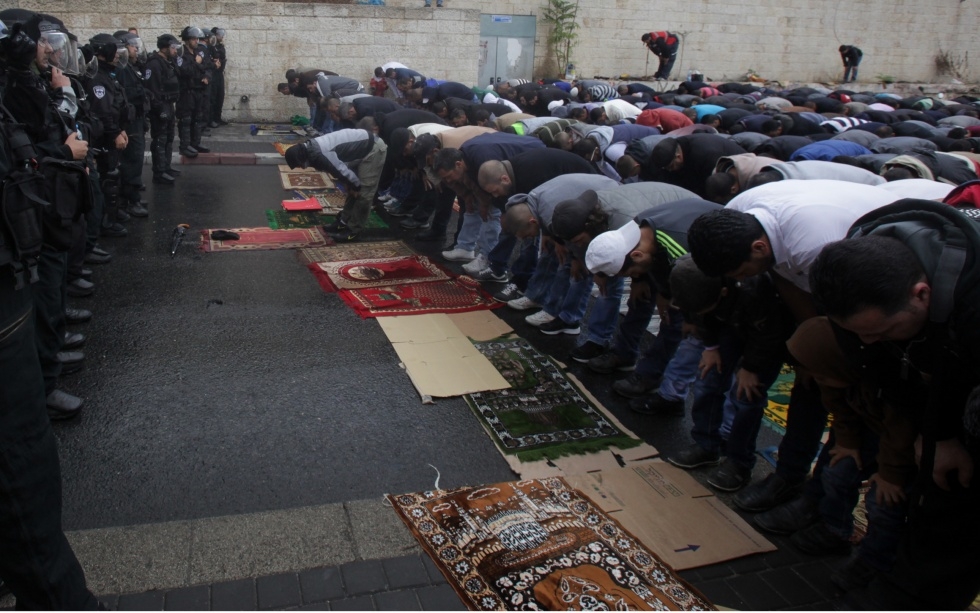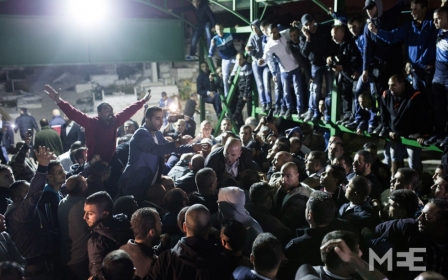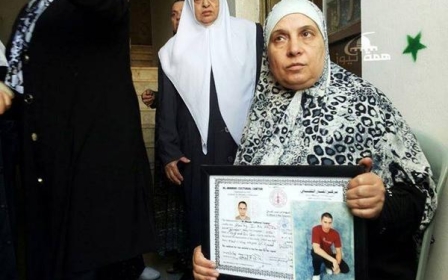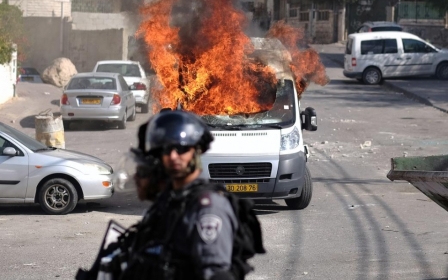Palestinian youths talk of a new intifada over al-Aqsa

Fourteen-year-old Hisham, who was born around the start of the second Palestinian intifada, dreams of a new uprising so he can play his part in "defending" Jerusalem's al-Aqsa mosque.
Al-Aqsa, situated in the heart of Jerusalem's Old City, is the buzzword for Hisham and his contemporaries -- most of whom refuse to give their real or full names -- since it once again became the focal point of the intractable Israeli-Palestinian conflict.
The al-Aqsa mosque compound, the third holiest site in Islam and Judaism's holiest -- known to Jews as the Temple Mount -- represents for Palestinian youngsters the Israeli occupation and the oppression it brings.
For Hisham, who peers with hazel eyes from beneath his grey hooded sweatshirt, the increasing number of Jewish visits to the site is the same thing as the more and more frequent arrest raids by Israeli security forces around his home in Shuafat refugee camp of annexed east Jerusalem.
"At 3:00 am, the soldiers come into the camp, impose a curfew, search the area, and then break and enter" into the houses of their targets.
"We're used to it. All the young people go in and out of prison on a regular basis."
Hisham recently spent his first stint in prison -- a week for taking part in clashes with security forces -- and will be tried within a month.
Twenty-year-old Mohammed, who has just spent four months in prison, said his incarceration would not deter him.
"There's no peace in Jerusalem. It's an intifada," he said.
"I'm ready to go back and confront the Israeli soldiers. I can't bear seeing (Jewish) settlers on the (al-Aqsa) mosque compound, when Muslims aren't allowed in."
Israel often blocks access to the site to Palestinian men under the age of 50, in security measures designed to avoid constant tension boiling over into clashes, which are frequent.
On Thursday, Israel shut the Al-Aqsa compound, promising to reopen it overnight, after clashes in east Jerusalem where police killed a Palestinian accused of trying to murder a hardline rabbi.
Israeli lockdown could cause an explosion of violence
Social worker Wael Mahmud said the reasons for the anger are deep-seated, rooted in the perceived takeover of Arab areas of east Jerusalem by hardline Jewish settlers, and the alleged complicity of authorities.
Of some 200,000 Israelis in east Jerusalem, mostly in Jewish-only settlement blocs, around 2,000 settlers live in the middle of Palestinian neighbourhoods.
A recent takeover of several properties in the flashpoint Silwan neighbourhood saw settlers move into 25 Palestinian-owned apartments.
Around 300,000 Palestinians live in east Jerusalem.
Mahmud has been trying to negotiate with Israeli forces to maintain access to his east Jerusalem neighbourhood of Issawiya -- 25,000 inhabitants -- saying a lockdown could cause an explosion of violence.
Salah, a 23-year-old Issawiya resident, said he does "not believe in dialogue or peaceful solutions" as espoused by Mahmud.
"Israel wants to kick Palestinians out of Jerusalem. It's a religious, demographic conflict and they attack houses and now al-Aqsa.
Munzer Taleb, a leader of the Shuafat refugee camp scouts, said the Israelis "want to control us, force us to have biometric identity cards, and they're setting up more checkpoints."
And the ritual, daily humiliation of passing through checkpoints, being searched and sometimes abused, quickly begins to take its toll.
Abu Mussa, a scout, was recently roughed up at a checkpoint.
"You have to be totally submissive, like a sheep, not to have problems with them (Israeli soldiers)," he said.
No one stands up for the Palestinians, said Abu Mussa -- "neither the Israeli courts, nor any Palestinian institutions. We only have God on our side."
The latest violence in east Jerusalem has been building up for months.
Early in the summer, Jewish extremists burned alive Palestinian teenager Mohammed Abu Khder in revenge for the killing of three Israeli teenagers in the West Bank.
Then a 50-day Israeli military offensive against Gaza killed nearly 2,200 Palestinians, almost a quarter of them children, as east Jerusalem erupted in protest.
"Children grow up scared of being the next Abu Khder," said Mahmud.
Pro-Aqsa rallies in the West Bank and Gaza
Several Palestinians were injured in the occupied West Bank on Friday when Israeli forces dispersed rallies staged in solidarity with al-Aqsa mosque.
Israeli forces used live ammunition, rubber bullets and teargas to disperse protesters marching to the Qalandia checkpoint between Ramallah and East Jerusalem, according to eyewitnesses.
Three Palestinian youths were injured by live ammunition and five others by rubber bullets, medics said.
Scores of Palestinian protesters also suffered temporary asphyxiation after inhaling teargas fired by Israeli forces, according to eyewitnesses.
Israeli forces also dispersed a rally in support of al-Aqsa in the West Bank city of Hebron, leaving scores of protesters suffering temporary asphyxiation.
Near the West Bank city of Bethlehem, meanwhile, clashes were reported between Israeli forces and stone-throwing Palestinians.
Meanwhile, hundreds of Palestinians staged rallies in the Gaza Strip on Friday in solidarity with the al-Aqsa mosque.
Protesters shouted pro-Al-Aqsa slogans during the rallies, organized by Hamas and Islamic Jihad in northern Gaza Strip and Gaza City.
"This is not just a protest; Qassam Brigades [Hamas' armed wing] are working tirelessly to increase its rocket arsenal and improve its range," Hamas leader Fathi Hammad told reporters during the protest.
He called on the Ramallah-based Palestinian Authority to halt security coordination with Israel "in solidarity with Jerusalemites and al-Aqsa mosque".
Israel occupied East Jerusalem during the 1967 Middle East War. It later annexed the holy city in 1980, claiming it as the capital of the self-proclaimed Jewish state – a move never recognized by the international community.
In September 2000, a visit to the site by controversial Israeli politician Ariel Sharon sparked what later became known as the "Second Intifada," a popular uprising against the Israeli occupation in which thousands of Palestinians were killed.
New MEE newsletter: Jerusalem Dispatch
Sign up to get the latest insights and analysis on Israel-Palestine, alongside Turkey Unpacked and other MEE newsletters
Middle East Eye delivers independent and unrivalled coverage and analysis of the Middle East, North Africa and beyond. To learn more about republishing this content and the associated fees, please fill out this form. More about MEE can be found here.




